As 2016 comes to a close, we honor those bringing the life-changing effects of the Transcendental Meditation® (TM) technique to various sectors of society: a young woman working with inner-city youth; a former Army Command Surgeon breaking the PTSD cycle; a teacher and professor establishing TM at an American medical school; and our Change-Maker of the Year—an educator who’s brought TM to at-risk students for over two decades.
Change-Maker of the Year
Dr. George “Doc” Rutherford
“Why is Doc my hero?” asks Bob Roth, executive director of the David Lynch Foundation. “Because for 45 years this great, courageous, noble man of tremendous integrity has put the love and welfare of his students above all else. And because, with great wisdom and persistence, he has put ‘Quiet Time’ on the map, and now hundreds of thousands of kids all over the world are benefiting from his work.”
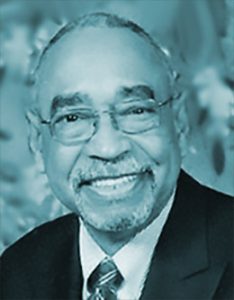
Dr. George “Doc” Rutherford, Principal of Ideal Academy Public Charter School, Washington, D.C.
Dr. Rutherford was one of the first public educators with the vision to see the tremendous potential of bringing the TM program to under-served schools where levels of stress are exceedingly high. In the early 1990s, he was the principal of the Fletcher Johnson Educational Center, a school in one of the most dangerous areas of Washington, D.C.
In his mid-50s at the time, and suffering from high blood pressure, he started TM at the suggestion of his heart doctor, along with his wife and four children. His teachers at Fletcher Johnson noticed the dramatic changes for the better in their principal and said, “We want what you have!”
To find out more, he visited a school where all the students, faculty, and staff practice TM, the K-12 Maharishi School in Fairfield, Iowa, on the campus of Maharishi University of Management. Impressed by the positive learning environment and the extensive scientific research on TM, Dr. Rutherford brought TM to his own school.
In fact, it was Dr. Rutherford who coined the term “Quiet Time” for a TM-based curriculum at a public school. Soon, nearly everyone at Fletcher was practicing TM as part of the school’s daily routine. During a three-year trial, the improvements in the school’s atmosphere, student behavior, and academic achievement were dramatic, even miraculous.
“For 45 years this great, courageous, noble man of tremendous integrity has put the love and welfare of his students above all else. . . and now hundreds of thousands of kids all over the world are benefiting from his work.” —Bob Roth, Executive Director, David Lynch Foundation
Dr. Rutherford has indeed put “Quiet Time” on the map. Today, he is the beloved principal of Ideal Academy Public Charter School in the District of Columbia, a school founded in 1999 with the “Quiet Time with Transcendental Meditation” program as a permanent element of its charter, approved by the D.C. Board of Education.
Educators and celebrities alike visit the Ideal Academy to see, firsthand, the profound effect this TM-based program has on students, staff, and faculty. As Dr. Rutherford told one visitor, “Transcendental Meditation is the only transformational program that you can put in a public school that can change a whole community and give us a better quality of life.”
Rebuilding Peace for War-Torn Vets and Refugees
Col. (Ret.) Brian Rees, M.D.
With five tours in Iraq and Afghanistan and eight years in hospital commands, Col. Brian Rees, M.D., a longtime practitioner of TM, had an epiphany: “Seeing PTSD cases develop in the theater of war finally caused the little spark in my brain to consider that which was right in front of my nose—the potential of TM for PTSD,” he told the Israeli newspaper Haaretz.
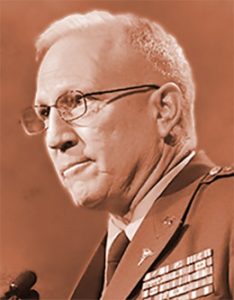
Colonel (Ret.) Brian Rees, M.D., Director of Operation Warrior Wellness at the David Lynch Foundation, and National Director of TM for Veterans
Soon after, in 2010, Col. Rees helped launch Operation Warrior Wellness, a new program at the David Lynch Foundation for veterans suffering from PTSD. Now retired from the military, Dr. Rees works tirelessly to bring TM to veterans struggling against the debilitating effects of PTSD—depression, self-medication, addiction, unemployment, homelessness, and high suicide rates—as the director of both Operation Warrior Wellness and the national director of TM for Veterans.
The results have been extraordinary. Within a short time of practicing TM, veterans with PTSD are restoring their bodies and minds, becoming themselves again in all areas of their lives—physical, emotional, spiritual, social, economic, and family.
Col. Rees has been instrumental in inspiring a shift in the military’s arsenal for improving soldiers’ resilience—and resistance to PTSD. Working with the Pentagon’s Comprehensive Soldier Fitness program, he examined the existing data on whether meditative techniques might strengthen soldiers’ ability to meet and “bounce back” from the horrors of war. In 2011, Military Medicine published his research overview, which found TM to have the greatest potential to bolster resilience among healthy soldiers, improving everything from moral maturity to ego strength, self-actualization, anxiety reduction, and nervous system stability.
“The science says TM works. Vets report it helps… Reconnect with your own inner, stable, quiet, joyful self. There’s nothing to lose, and everything to gain.” —Dr. Brian Rees, Colonel (Ret.) Medical Corps, U.S. Army Reserve
Dr. Rees’ work also extends to the victims of war, as the lead author of two recent studies on the effects of Transcendental Meditation practice in resolving post-traumatic stress in Congolese refugees. These individuals have experienced or witnessed war violence and the abuse, torture, rape, and murder of loved ones, and are suffering from severe PTSD. Dr. Rees and David Shapiro reported their remarkable findings in the Journal of Traumatic Stress: after just 10 days of practicing TM, Congolese refugees experienced an almost 30-point drop in PTSD symptoms—a highly significant clinical result. Thirty days later, their PTSD scores indicated they were nearly symptom-free.
Dr. Rees sums up his mission in a message to fellow vets on the TM for Veterans site: “The science says it works. Vets report it helps. Look at the site, then let us connect you with a teacher and see if it fits. Reconnect with your own inner, stable, quiet, joyful self. There’s nothing to lose, and everything to gain.”
Creating Breakthroughs in Medical Education
Carla Brown, Ed.D, and Duncan Brown, M.A.
Everyone quotes the old adage “Physician, heal thyself,” but how? The medical profession is in desperate need of support due to high levels of stress and widespread burnout. Thanks to TM teachers and change-making educators Carla Brown, Ed.D, and Duncan Brown, M.A., this need is finally being met in a fundamental way. For the first time, the TM program is being offered as an elective course at a major American medical school.
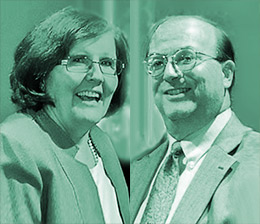
Carla Brown, Ed.D., and Duncan Brown, M.A., Chicago Educators and TM Teachers who established a TM elective at the Stritch School of Medicine, Loyola University
Working with the deans and faculty of the Stritch School of Medicine, affiliated with Loyola University in Chicago, Carla and Duncan Brown created a “blended curriculum” that enables med students to learn the TM technique and attend lectures by leading doctors and researchers about the scientific research on the health benefits of TM and the methodology behind its effectiveness. Medical students improve their own health while learning how it can help their future patients.
In a recent article in Chicago Medicine, Dr. Brown, adjunct professor, and Dr. Gregory Gruener, vice-dean for education at Stritch, comment that “students can easily take control of their own wellness by gaining deep rest and improving brain functioning with twice-daily TM practice.”
The authors report that one medical student was experiencing so much stress and anxiety, she feared she couldn’t sustain a career in medicine, let alone the passion that led her there. But after enrolling in the Stritch elective “Physician Wellness through Transcendental Meditation,” she was getting more out of each day and enjoying her work again. “There is also a new relaxed state and excitement about the way in which I engage, because of my experience with self-care and TM,” she said. “The stress of our career will always be present, so it is important that as physicians we learn to eliminate it, rather than just manage it. These experiences have made me very excited for my future career as a physician.”
“Our students can recommend something that they know will help, based upon their own experience and upon substantial evidence. They can avoid burnout and maintain their enthusiasm for practicing medicine.” —Carla Brown, Ed.D., and Gregory Gruener, M.D., “Physician, Heal Thyself”
Such doctors-to-be also now have a vital healthcare option to suggest to patients, note Drs. Brown and Gruener. “Having TM as a tool means our students can recommend something that they know will help, based upon their own experience and upon substantial evidence. They can avoid burnout and maintain their enthusiasm for practicing medicine,” they write. “Our students have demonstrated that we can join them in restoring our own balance, enthusiasm, and mastery… by making our profession a more rewarding experience while also offering something of great value for our patients.” Watch an interview with Dr. Brown, student Danielle Terrell, and Dean Linda Brubaker, M.D., on “Chicago Tonight,” PBS WTTW ►
Bringing Inner Peace to Inner-City Youth
Donielle Freeberg
In 2009, Donielle Freeberg received a life-changing phone call. It was David Lynch, prophetically announcing, “Donielle, you’re going to become a Transcendental Meditation teacher and move to Los Angeles.” Within nine months, Freeberg had graduated from Maharishi University of Management with a degree in communications and media, completed her TM Teacher Training Course, and started the first David Lynch Foundation (DLF) TM-based “Quiet Time” program in L.A.
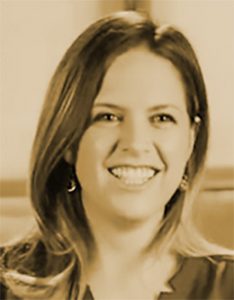
Donielle Freeberg, TM Instructor and “Quiet Time” Teacher with the David Lynch Foundation
“I’ve witnessed students experience quiet, experience silence, experience themselves—their true selves—for the first time when they learn Transcendental Meditation,” says Freeberg, who has proven herself to be a true leader and change-maker for DLF. For the past six years, she has been at the vanguard of teaching TM to young people in hard-hit urban areas, helping them discover who they really are.
Freeberg started the first L.A. “Quiet Time” program at Children of the Night, a shelter that rescues young girls who are victims of prostitution. That year she also launched the first school-wide “Quiet Time” program in L.A. at New Village Girls Academy, a public charter high school with mostly Latina girls who’ve been failed by traditional education, many of whom are pregnant or teen parents and living in poverty.
In 2013 Freeberg added a second school to her L.A. teaching responsibilities, a middle school with mostly African-American students living in a dangerous neighborhood. For two years Freeberg shuttled between both schools, supporting students and teachers, teaching and checking TM practice, and modeling inspiring behavior for her students.
Now Freeberg is in New York, where she started a new “Quiet Time” program at a Bronx high school in 2015. In a recent interview, she shared the story of one of her TM students: “Last week a student that I taught at the new school I’m working with opened her eyes after the first meditation and said, ‘Wow, the anger is gone; the stress is gone… I’m going to use this at home. I’m going to close the door, put a sign up so no one bothers me, so I can have this time for myself, to get rid of the anger and the stress. I want my mom to do this. I want my little brothers and sisters to do this. I’m really going to use this.”
“I’ve witnessed students experience quiet, experience silence, experience themselves—their true selves—for the first time when they learn Transcendental Meditation.” —Donielle Freeberg, TM Instructor, David Lynch Foundation
Our TM Heroes
The 2016 Change-Makers of the Year are bringing the life-changing effects of the TM program to all sectors of society. We’re privileged to honor each of these heroes, who are helping to create remarkable transformations in our world today. We celebrate their contribution to the health and well-being of thousands and to society as a whole. On behalf of Enjoy TM News and the nationwide TM community, we thank all of you and wish you continued success in your extraordinary work.
Learn more about the David Lynch Foundation ►
Find out about the Center for Leadership Performance ►

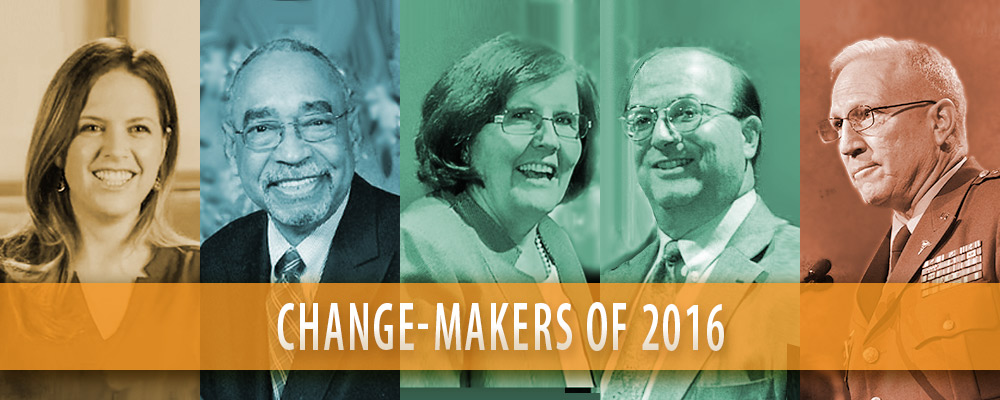
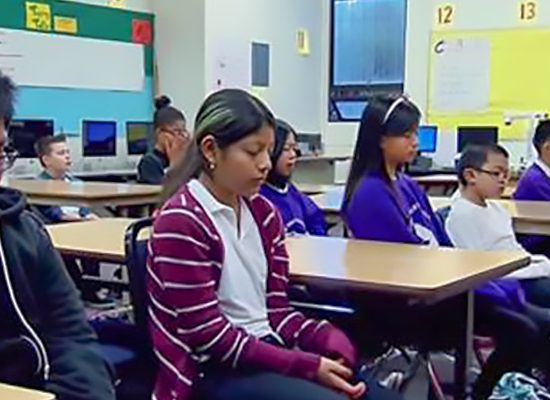


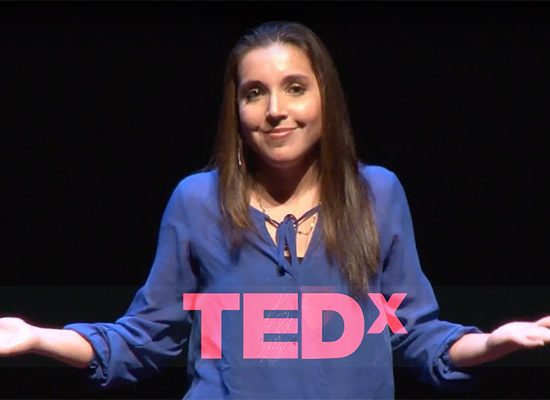
Thank you for publishing these inspiring profiles. I’ve put a link to this page in my “virtual library” on social justice and equality (https://sakai.unc.edu/x/Snddlv), which has a large section on TM and DLF. The library link is at http://go.unc.edu/sjae). Yes, I Enjoy TM!
Thank you for including a link to the Change-Makers of 2016 in your virtual library! We’re happy to be among this illustrious group working on behalf of social justice and equality. Thanks for your good work and courses, and all best wishes for 2017.
Thank-you for the newsletter. I so appreciate reading the inspirational work you’re doing. And the reminder to re-start, continue on with TM
Thank you for your kind comment. We’re so glad to hear you’re enjoying these inspiring stories. They’re inspiring for us as well! Keep up your TM practice and the benefits will continue to grow and unfold. A great way to restart/continue is to contact your teacher or center for a personal checking session or refresher course. Enjoy and best wishes!